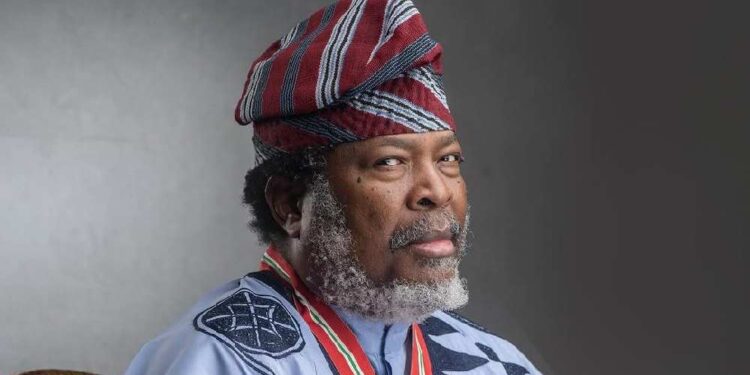Founding Chairman and Editor-in-Chief of THISDAY Media Group and ARISE News Channel, Nduka Obaigbena, has announced the latest milestone of the conglomerate, Lekeelekee, a social media platform.
Obaigbena made the announcement in Abuja on Wednesday, at the 21st All Nigeria Editors Conference themed “Democratic Governance and National Cohesion: The Role of Editors.”
He urged editors to defend democracy, adapt to artificial intelligence and reclaim Africa’s voice in global media distribution.
Speaking to an audience of over 500 editors, policymakers and diplomats at the State House Conference Hall, Obaigbena announced that Lekeelekee will take off in January 2026.
The venture, he said, aims to “dilute the chokehold of the United States and China” over the global flow of information and entertainment content.
“We must engage for the greater good of Nigeria,” Obaigbena told the gathering, recalling the dark memories of journalist, Ken Saro-Wiwa’s execution 30 years ago under military rule. Thirty years after, we sit in this same complex under a democratic government, that is why democracy matters,” he said.
In a wide-ranging speech that blended history, economics and media foresight, Obaigbena drew a line from Nigeria’s past authoritarianism to its present democratic gains. He cited three media figures who shaped Nigerian politics namely, Nnamdi Azikiwe, Obafemi Awolowo and Bola Tinubu, as examples of how journalism and leadership are intertwined.
Hosting the conference, President Tinubu, himself a former media proprietor, was praised by Obaigbena for engaging directly with the press.
“We are at the crossroads of reforms that have been hard fought,” he said. “We must protect our economic stability with everything we have, because if we lose it, we lose the sacrifices of the last two years,” he said.
Obaigbena warned that any external sanctions or disruptions could “destabilise the economy” and reverse recent fiscal progress. Instead, he urged editors and national leaders to “build a coalition of the willing,” to combat insecurity, poverty, and misinformation through dialogue and shared national purpose.
Turning to technology, Obaigbena said the rise of artificial intelligence was transforming how journalism is produced and consumed. He warned that Africa risks becoming “a passive spectator” in a world where “one or two countries control global content distribution.”
“We are entering an AI-dominated information age. Google’s algorithms are changing, search models are shifting and the monetisation of content is being rewritten. If we do not act, we will again be consumers, not creators, in the new media economy,” he stated.
He said Lekeelekee would serve as a homegrown African alternative, a multimedia hub that allows creators, editors and broadcasters to distribute and monetise their work independently of Western or Chinese digital giants.
“We have a responsibility to build our own technology and algorithmsto determine how our content is earned and shared,” he added.
















